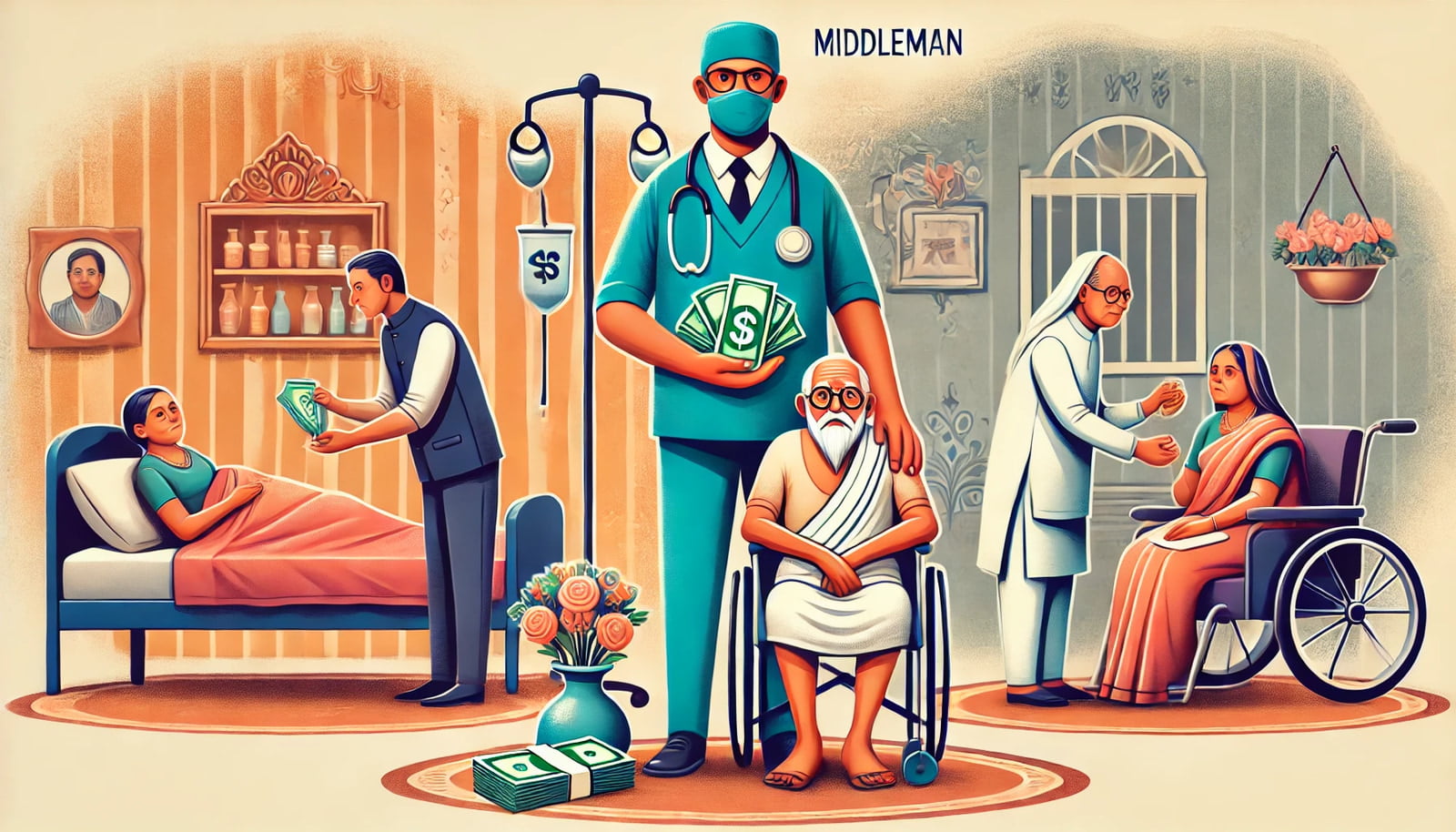In India, the home healthcare sector is rapidly growing, driven by an aging population and the increasing prevalence of chronic diseases. However, this growth is not without challenges. One of the most significant issues plaguing the sector is the role of middlemen, who significantly impact both care seekers and caregivers. These intermediaries often inflate the overall cost of services while not necessarily adding proportional value, leading to higher expenses for care seekers and lower pay for caregivers. This blog explores the impact of middlemen on home healthcare services in India and potential solutions to address this issue.
Impact on Care Seekers
Middlemen add layers of cost to the services provided, which inflates the overall price for care seekers. In a fragmented market like India's, where multiple small-scale providers operate with varying quality standards, intermediary fees can make home healthcare services prohibitively expensive for many families, especially for long-term care needs.
For instance, a family seeking long-term care for an elderly member might find themselves paying significantly more due to the added cost imposed by middlemen. This can be a major burden, particularly for middle-income and lower-income families, making essential healthcare services inaccessible.
Impact on Caregivers
Caregivers often work under informal arrangements facilitated by middlemen, leading to job insecurity, inconsistent pay, and a lack of recognition. Middlemen tend to take a significant portion of the fees, which reduces the earnings of caregivers. This situation contributes to job dissatisfaction and high turnover rates among caregivers.
For example, a caregiver might be paid a fraction of what the care seeker is charged, with the middleman pocketing the difference. This not only demotivates caregivers but also affects the quality of care provided, as caregivers may be less invested in their work due to poor compensation and lack of job security.
Potential Solutions
Potential Solutions
Developing platforms that connect care seekers directly with caregivers can help eliminate the middleman, reducing costs and ensuring better pay for caregivers. This approach can also facilitate more transparent pricing models and improve service quality through direct feedback and ratings.
For example, an app or website that allows families to find and hire caregivers directly can ensure that all payments go directly to the caregivers. This not only reduces costs for care seekers but also ensures fair compensation for caregivers.
Standardization and Regulation
Standardization and Regulation
Implementing comprehensive background checks, rigorous certification processes, and leveraging user-generated reviews and ratings can build trust and standardize service quality. Regulatory frameworks can help ensure that caregivers receive fair compensation and job security.
For instance, a standardized certification process for caregivers can ensure that all caregivers have the necessary skills and qualifications, building trust among care seekers. Regulatory frameworks can also protect caregivers from exploitation by ensuring fair wages and job security.
Insurance and Government Support
Expanding insurance coverage to include at-home healthcare services and introducing government-subsidized programs can make these services more affordable for families. This support can also help standardize the industry and ensure fair practices.
For example, government-subsidized home healthcare programs can make essential services more affordable for families, while also ensuring that caregivers are fairly compensated. Insurance coverage for home healthcare can also reduce out-of-pocket expenses for families, making these services more accessible.
Conclusion
Middlemen significantly contribute to the high costs and poor working conditions in the Indian home healthcare sector. Addressing these issues through direct platforms, standardization, and regulatory support can improve the situation for both care seekers and caregivers. By eliminating the middleman, we can create a more transparent, affordable, and fair home healthcare system in India, ensuring that essential services are accessible to all families and that caregivers receive the recognition and compensation they deserve.

